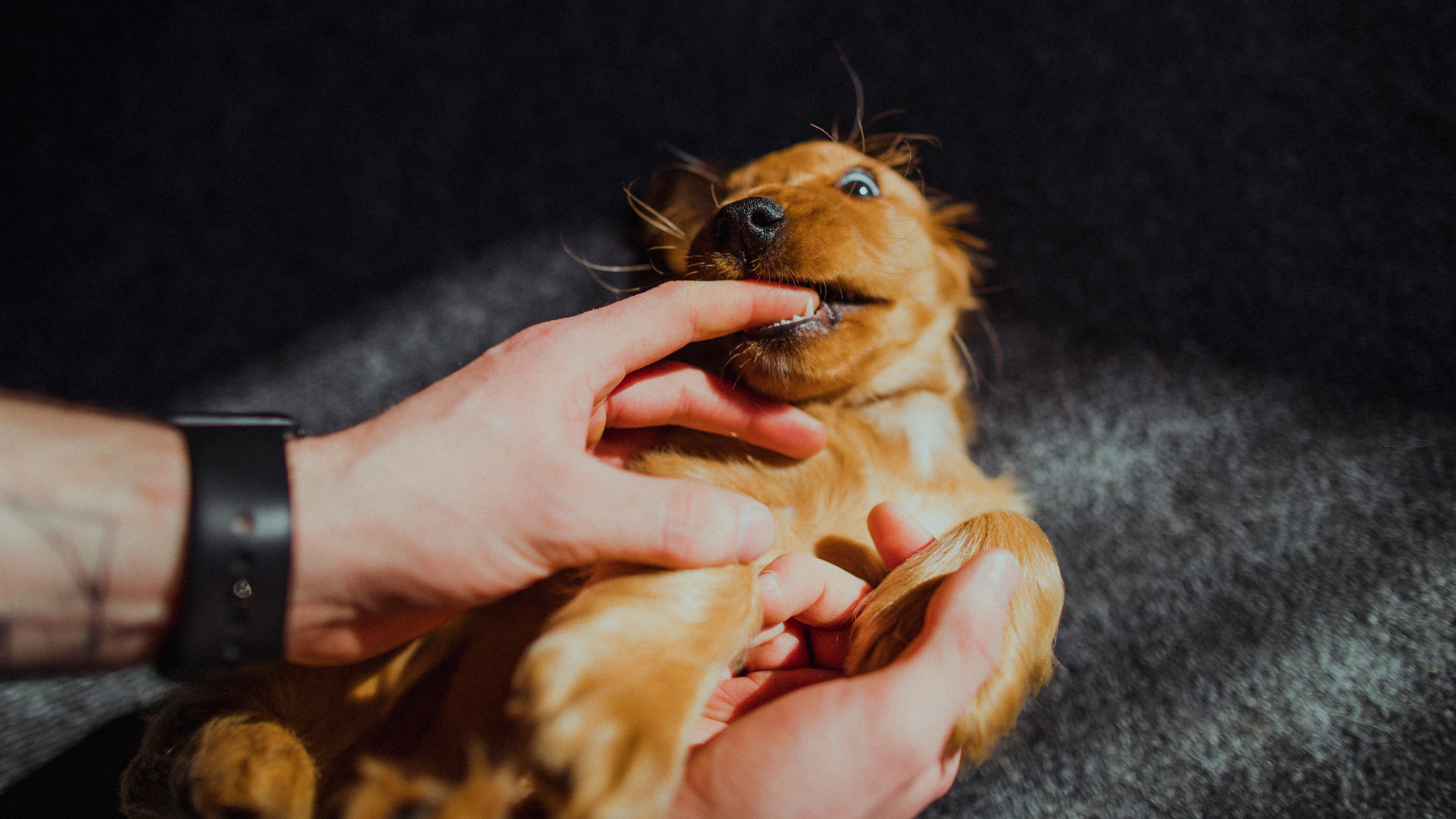Worried your puppy is biting too much? Canine trainer debunks four myths about the common behavior
Discover the truth about puppy biting as a certified dog trainer debunks common myths

Get the best advice, tips and top tech for your beloved Pets
You are now subscribed
Your newsletter sign-up was successful
When puppies begin biting, it's natural for owners to question whether or not they should be concerned about this behavior. Biting is a normal part of a pup's development as they explore the world through their mouths, using biting as a way to learn and play. However, the perception of puppy biting as a potential problem often leads to worry especially when their teeth take to you and not the best puppy toys.
Of course, you can learn tips and tricks on how to stop a puppy biting but in most cases you needn't worry too much as it is a behavior they typically grow out of. But, if you're still concerned about the myths surrounding puppy biting, Alex Sessa, owner and head trainer at Peaches on a Leash, took to Instagram to dispel these misconceptions and provide valuable insights into understanding and managing puppy biting.
Watch Sessa myth bust in an Instagram video below...
A post shared by Peach On A Leash Dog Training (@peachonaleash)
A photo posted by on
Sessa is a Certified Professional Dog Trainer through the Certification Council for Professional Dog Trainers and with her expert insights she is the voice of reassurance to puppy owners who may be struggling to understand the biting behavior and what it says about their dog.
Myth number one: puppy biting is a behavior problem
Sessa clarifies that puppy biting is entirely normal, "Especially in puppies under six months of age," she adds. Biting is a natural part of puppy development and a way for them to explore their environment and engage in social play.
Myth number two: Bitey puppies are trying to exert dominance
Sessa dismisses this idea, emphasizing that there is no evidence to support the dominance theory. Puppy biting is often a result of teething, curiosity, or simply their way of interacting and learning about the world around them.
Get the best advice, tips and top tech for your beloved Pets
Myth number three: Tiring a puppy out will prevent biting
While some owners may think that tiring out a puppy will prevent biting, Sessa explains that it can actually have the opposite effect. Biting can be a means for puppies to communicate their needs, such as fatigue, hunger, overstimulation, or boredom. The more tired a puppy is the more bitier they can get. "We want to make sure puppies are getting naps and rest periods during the day otherwise exercise, exercise, exercise can lead to a bitier puppy," notes Sessa.
Myth number four: A bitey puppy is more likely to become aggressive into adulthood
"The good news is that is not the case," says Sessa, "In fact when we’re concerned about aggressiveness in puppies we are looking for very different behaviors than play biting. Play biting is not an indicator of future aggression."
f you do feel like your puppy's biting is out of control or posing risk to yourself or others then don't be afraid to seek out professional help from a certified behaviorist or trainer. Check out our guide on how to spot dog trainer red flags before booking someone in to meet your pup.

Jessica holds a journalism degree from Cardiff University and has authored articles for renowned publications, including PetsRadar, Fit&Well, LiveScience, Runner's World, The Evening Express, and Tom's Guide. Throughout her career in journalism she has forged connections with experts in the field, like behaviorists, trainers, and vets. Through her writing, Jessica aims to empower pet owners with accurate information to enhance their furry companions' lives.
